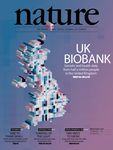WHOLE GENOME SEQUENCING: Transforming health research - UK Biobank
←
→
Page content transcription
If your browser does not render page correctly, please read the page content below
WHOLE GENOME SEQUENCING: Transforming health research
A ground-breaking initiative to sequence the whole genomes of 450,000 UK Biobank
participants has been announced. The venture is funded by government, charity and
industry and is in addition to the 50,000 volunteer samples already being sequenced
by UK Biobank with funding from the MRC. It is the biggest endeavour of its kind
ever undertaken, and will transform the way in which scientists study health.
What is the purpose of whole treatments. In UK Biobank’s Why is this important?
genome sequencing? case, the genome from a single UK Biobank’s goal, with your
Whole genome sequencing person is of no real interest. support and the support of
turns blood samples into However, by making it possible our other 500,000 volunteer
usable data. Sequencing all for researchers to participants, is to create
of the participants in UK compare thousands of a resource of detailed
Biobank means that these data genomes – or hundreds of information that will help
can be readily shared among thousands – patterns will scientists find out why some
all approved researchers, emerge, differences will people get illnesses like cancer,
anywhere in the world, become clearer and the heart disease, diabetes and
whenever they are needed. impact on a wide range of depression and others do not.
Each individual has a unique diseases of individual genes or With knowledge, comes the
genetic code of 3 billion combination of genes, along power to produce change.
building blocks. These make up with lifestyle and envrionment, Detailed information on
the 24,000 active genes (and are likely to be found. This genetics, linked to lots of other
much more) inside a human might suggest new ways information about your lives,
cell that control biochemical to tackle disease, and help the illnesses you get and how
processes that underpin life. identify people at higher risk, you are treated will boost
The vast majority of genes so that preventive strategies understanding, and speed up
are the same in everyone, but such as screening programmes advances in health care.
small changes account for our can be better targeted.
differences, and can make us
more susceptible to illness, or
affect the way we respond to
How will participants’ privacy be protected?
UK Biobank has a number of systems in place to ensure that
you are not identified when data you have generously provided
is used for health research. For instance, data are separated
at the point of collection from personal information (such as
name, date of birth) and retained separately. Data are also
extensively encrypted and access to the decryption keys is
very limited (to those that need them). Further, when data are
released to researchers they are fully de-identified. In addition,
all research is undertaken under a legal agreement with UK
Biobank which prohibits any researchers from identifying
participants.
Will UK Biobank participants be identifiable through the
data? No, identifiable data are not provided to researchers.Where will the sequencing take place?
Having gained UK Biobank approval for the sequencing, the
applicants appointed the Wellcome Sanger Institute and
deCODE in Iceland to conduct the next phase of work in
roughly equal measures. UK Biobank will provide them with a
small portion of blood, currently stored at minus 80 degrees in
our Coordinating Centre in Stockport, from each participant.
They will then provide the sequence data to UK Biobank.
Why now?
In recent years, advances in technology have revolutionised
the time it takes to sequence the human genome, and the cost
involved. The first human genome was sequenced in 2003
after several years and at a cost of nearly US $3Bn. It is now
feasible to sequence large numbers very much more rapidly
and at far lower costs. Sequencing all 500,000 UK Biobank
Who is funding the work? participants now will deliver the project’s genetic promise
A pilot project (the Vanguard) very much quicker than would have been expected when
to sequence the whole recruitment began in 2006.
genomes of 50,000 UK
Biobank participants is already When will the genetic data participants) linked to all
underway. (You may remember be used for research? of the other data in the UK
reading about its launch in last Scientists are already using Biobank resource.
year’s Newsletter.) The £30 participants’ genetic data
million funding was provided in the form of genotype • After an exclusive access
to UK Biobank by the UK’s and exome sequence data. period of 9 months to the
Medical Research Council However, these data make benefit of the applicants,
(MRC) and the sequencing is up only a proportion of the these data will be made
being done at the Wellcome human genome. It is intended available to all other
Sanger Institute in Cambridge. to complete the whole approved researchers
genome sequencing of all around the world in March
This new project, to sequence 500,000 participants during 2021.
the other 450,000 participants, the next 2 years. An outline
is funded by government, timetable is as follows: • Similarly, after completing
charity and industry: the sequencing of all
• At the end of May 2020, 500,000 participants in
• £50 million from the the four pharmaceutical early 2022, the consortium
government’s UK Research companies will be provided will again have exclusive
& Innovation (UKRI) with access for analysis to access to these linked data
Industrial Strategy Challenge the first tranche of for 9 months before all of
Fund; sequence data (anticipated the data are made widely
to be for about 125,000 available by the end of
• £50 million from the charity 2022.
The Wellcome Trust;
Why do the industry partners get an exclusive period to
use the data?
• £100 million (£25 million
With government, industry and charity working together,
each) from four of the
a vast amount of genetic data will be made available to
world’s leading
the health research community. Without this investment
pharmaceutical companies,
from industry, these data would not be available. Providing
GlaxoSmithKline (GSK),
an exclusive period has already been used successfully
AstraZeneca (AZ), Johnson &
to secure the investment for exome sequencing led by
Johnson (J&J) and Amgen.
Regeneron and partners. Those exome data are now
available to health researchers, and more than 100 health
studies using them are now under way.What other genetic analyses have taken place?
This new sequencing work supports other genetic analyses which are already contributing to
research:
• Genotyping (completed) – analysis of around 800,000 key points of the 3 billion building blocks
that make up the human genome. This enables statisticians to impute (i.e. estimate, based on past
analysis) a further 90 million points;
• Exome sequencing (under way) – this involves the study of about 3% of the human genome,
and targets the active genes that produce proteins that build cells and control cell activity.
50,000 exomes were sequenced in a joint venture by the pharmaceutical companies GSK in the
UK and Regeneron in the US. The first exome sequenced data were released to the global
research community in March 2019. Regeneron and a consortium of five other companies are
now exome sequencing the other 450,000 samples. Again, these data will be made available to
other researchers, with an additional 100,000 exomes to be released in April 2020.
How will UK Biobank and and last year UK Biobank
health research benefit from featured in one of the most
this collaboration? prestigious, Nature. New
Researchers are already release of sequence data will
using UK Biobank genetic provide even more impetus
information, linked to a wide for research to bring about
range of health outcomes, advances in preventing and
to study health. Many treating a wide range of
studies have published in disorders more quickly.
expert scientific journals,
Is there a requirement that their findings public and tell
results must be published us what, if anything, they
within a particular time? have patented or otherwise
If so, when and where? found out that is significant
All researchers using the for health. Researchers are
UK Biobank resource are also obliged to return their
required to report annually results to UK Biobank so that
on the progress of their work. other researchers can benefit
They are expected to make from them.How big – and how important you provided when you joined data on 100,000, eye measures
– is this development? the study, and subsequent on 80,000 and a number
UK Biobank is of national enhancements (genotyping all of well-supported online
and international strategic 500,000 participants, exome questionnaires). Research
importance in the global effort sequencing currently under based on all of this information
to improve health. The addition way, detailed imaging of will contribute to better
of whole genome sequencing 100,000 participants, links to treatments and improved
is tremendously exciting. It health records, biochemistry prevention and diagnosis in the
builds on the baseline data on 500,000, week-long activity coming years.
What is the benefit for UK the potential benefits for the
Biobank participants and the wider public (including UK
wider public? Biobank participants) of having
On joining UK Biobank, these whole genome sequence
you were told that your data available for research are
participation may be of no enormous in understanding and
direct benefit to you, but treating diseases. Your data and
that it was an investment samples now comprise one of
for future generations. UK (if not the) most extensive and
Biobank does not provide widely used research resources
feedback to participants, but worldwide.
Relevant links:
Whole genome sequencing – first 50,000 announced: https://www.ukbiobank.ac.uk/2018/04/
whole-genome-sequencing-will-transform-the-research-landscape-for-a-wide-range-of-
diseases/
UK Biobank genetics in the news: https://www.ukbiobank.ac.uk/genetics-in-the-news/
Tantalising and exciting: UK Biobank genetics opens the door to a new era of health
research: http://www.ukbiobank.ac.uk/2018/10/tantalising-and-exciting-uk-biobank-genetics-
opens-the-door-to-a-new-era-of-health-research-2/You can also read
























































